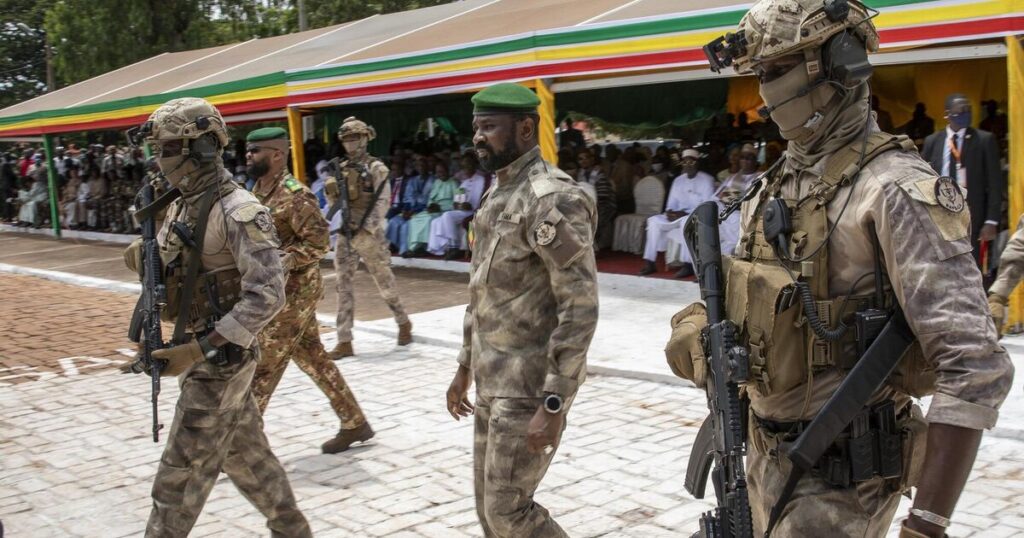Extremists have perpetrated a deadly attack on a military base in Mali, resulting in the deaths of dozens of soldiers. This incident, confirmed by civil society and military sources on Tuesday, highlights the ongoing militant violence plaguing West Africa’s volatile Sahel region.
The assault occurred on Sunday at the Boulkessi base, situated near the Burkina Faso border. According to a local civil society activist, who spoke to The Associated Press anonymously due to lack of authorization, at least 60 soldiers were killed and 40 others wounded.
The al-Qaeda-linked JNIM group has claimed responsibility for the attack.
A military source informed the AP that approximately 280 soldiers were stationed at the base, and “all of those who didn’t die were taken prisoner by the terrorists.”
The Malian army acknowledged the attack in a statement released on Monday, stating that soldiers had fought “to their last breath.” However, the army did not provide a precise casualty count.
Mali, along with its neighbors Burkina Faso and Niger, has been struggling to contain an insurgency waged by armed groups, some of which have ties to al-Qaeda and the Islamic State group.
Following recent military coups, all three nations have expelled French forces and have sought security assistance from Russian mercenary units.
In a separate incident on Monday, JNIM also claimed responsibility for coordinated attacks targeting a military airport, a military base, and army checkpoints in the northern town of Timbuktu.
The Malian army reported on social media that it had repelled the Timbuktu attack, claiming to have killed 13 extremists while withholding information on soldier casualties.
A hospital employee in Timbuktu reported one soldier’s death from wounds sustained and the wounding of 10 others.
Residents of Timbuktu reported hearing intense gunfire and witnessing armed men entering the town on motorcycles, speaking anonymously out of fear of reprisal.
Rida Lyammouri, a Sahel expert at the Morocco-based Policy Centre for the New South, stated that the high level of coordination observed in the two attacks suggests extensive planning by JNIM.
Extremist attacks have been escalating in both Mali and neighboring Burkina Faso in recent weeks, with JNIM establishing a strong presence in both countries.


